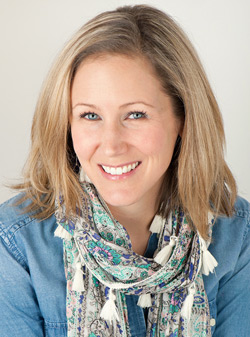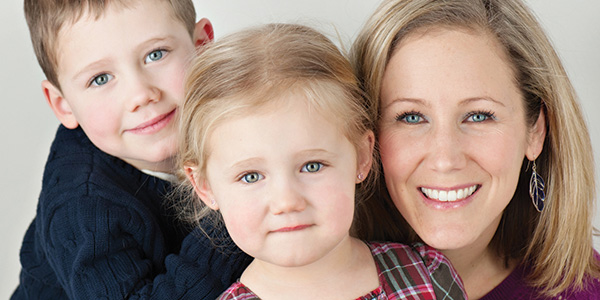
I love talking about the power of an individual to help change our world, which is why I have posted several blogs about Jennifer Marshall, who along with Anne Marie Ames, launched This Is My Brave, a non-profit organization that produces professional quality stage shows that feature men and women talking openly and frankly about their mental disorders and recovery.
So I was thrilled when I saw Jennifer’s smiling face on the Fall 2015 cover of BP (Bipolar Magazine).
After launching their first show here in Virginia, Jennifer and Anne Marie have gone national, most recently producing a successful show in New York City and now moving on to Los Angeles. (My son Kevin, was an original cast member in Va.) Jennifer and Anne Marie are incredible advocates who are fearless in their efforts to fight stigma and increase understanding.
“One day we will live in a world where we won’t have to call it “brave” when talking about mental illness. We’ll just call it talking” is part of their motto. Please visit their website by clicking here.
Because of copyright restrictions, I can only reprint an excerpt of the BP cover story. Congratulations Jennifer! You are one of my heroes.
Balancing Motherhood & Bipolar: Brave New World
(courtesy of Bipolar Magazine.)
For Jennifer Marshall—wife, mother, and creator of ‘This Is My Brave’—a bipolar diagnosis led to a more satisfying life and redefining what really matters.
By Lori Hile
 Jennifer Marshall used to define success in terms of her high-powered recruiting job for one of the top creative staffing agencies in the Washington, D.C., area. She was the lead salesperson at her office, earning six figures by age 26.
Jennifer Marshall used to define success in terms of her high-powered recruiting job for one of the top creative staffing agencies in the Washington, D.C., area. She was the lead salesperson at her office, earning six figures by age 26.
First to arrive and last to leave the office, she often continued to work at home into the wee hours of the morning. Even as she lay in bed, her mind would race with visions of emails to return. She admits she was “obsessed,” neglecting her passion for writing, drawing and crafts in favor of a generous income.
Fast forward to an afternoon early last winter. Marshall and her creative partner, Anne Marie Ames, were ensconced in a room at their local library, listening like American Idoljudges as several women shared candid stories about living with bipolar, depression and anxiety. The women were auditioning for a nonprofit production Marshall conceived and was shepherding to the stage.
Auditions complete, Marshall headed home to have dinner with her husband, put their two young children to bed, and turn in herself for a good night’s sleep.
“Self-care” and “balance” have become her watch words.
“I know what happens when … you don’t take time to take care of yourself and take time for your family, or for other things in life you enjoy, and your friends, so I learned from experience,” reflects Marshall, who is now 36.
The catalyst for change? A diagnosis of bipolar disorder in 2006. Coming to terms with the illness forced her to re-prioritize her values and redefine what a successful life looks like. The result? “I like myself much better now,” she says.
Overwork & over-worry
Marshall’s first brush with mania came in December 2005. She and her husband, Ben, a federal contractor, had been married for two years. They were building their dream house in northern Virginia.
“Everything was going great,” she recalls … except for one small drawback: “I was working myself to death.”
Marshall’s husband returned from a business trip to find she hadn’t slept for a week. Her words tumbled out at hyper-speed—a symptom known as pressured speech—but she wasn’t making much sense. A doctor dismissed the incident as lack of sleep, but 10 days later, while visiting her parents in Florida for the holidays, Marshall experienced another manic episode. She spent Christmas Day in a psych ward.
With a tentative diagnosis of bipolar, Marshall returned to Virginia and her pressure-cooker job. Her anxiety level stayed sky-high, and it became clear she would have to resign.
This set the stage for the darkest year of Marshall’s life.
“It just was devastating for me to come to the realization that I have a mental illness and I can’t even work,” she says of her state of mind back then. Without the job to define her, “I didn’t know who I was anymore.”
Marshall fell into “a very dark clinical depression” that lasted nearly a year. When a trusted psychiatrist definitively diagnosed her with bipolar I, she started taking medication that worked. Four months later, she felt her upbeat personality returning.
Marshall tried tapering off her dosage during her pregnancies, but learned that doesn’t work out well for her. After her son was born in 2008, she experienced postpartum psychosis. When she was pregnant with her daughter, mania hit after just a few weeks off her meds and she had to be hospitalized. Since then, she’s been vigilant about maintaining her medication regimen.
Lack of sleep is her other main trigger, so she’s also vigilant about protecting her rest. She has a rule about being in bed before midnight. Even when she’s working on a project in the evening, she forces herself to shut it down.
Her husband’s support has been critical. When their children were small, he handled night feedings so her sleep wasn’t disturbed.
He’s also on board with her decision to stay home with the kids. She says the main reason is “so I don’t miss anything” while they’re growing uip, but the choice also allows more flexibility for self-management strategies — and affords her the time and flexibility to nurture her latent creative talent. … [end of excerpt]
Lori Hile is a Chicago-based freelance writer whose work has appeared in regional and national publications. She is the author of 12 nonfiction books for young audiences.
You can read more about Jennifer by visiting her blog (www.bipolarmomlife.com)




